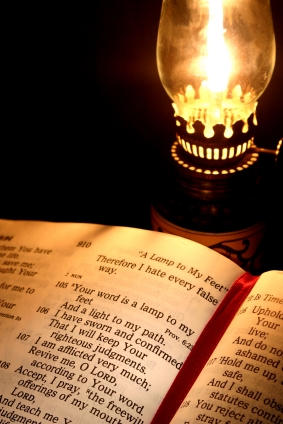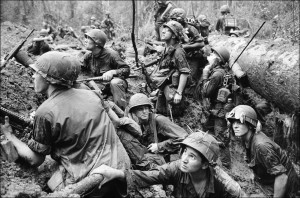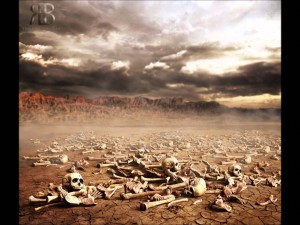For the Word of the Lord holds true, and we can trust everything He does. (Psalm 33:4)
 There are two words in this verse which are either lost, or come at a premium, depending on your worldview. They are true and trust. And trust cannot exist without truth. So let’s tackle true first.
There are two words in this verse which are either lost, or come at a premium, depending on your worldview. They are true and trust. And trust cannot exist without truth. So let’s tackle true first.
The Hebrew word for true is most often translated as right and upright. Now, it only makes sense the Word of God is true (right and upright) because God is true.
Into Your hand I commit my spirit; You have ransomed me, O LORD, God of truth. (Psalm 25:5)
But You, O Lord, are a God merciful and gracious, slow to anger and abundant in lovingkindness and truth. (Psalm 86:15)
This is not, however, an unknowable attribute. Why? First because He has given us His Word, and it can be learned:
Lead me in Your truth and teach me, for You are the God of my salvation; for You I wait all the day. (Psalm 25:5)
And it causes us to worship:
I will also praise You with a harp, even Your truth, O my God; to You I will sing praises with the lyre, O Holy One of Israel. (Psalm 71:22)
 What does it mean that the Word of the Lord holds true? Some of the definitions of true are straight and level. God will go great lengths to speak to us: A voice is calling, “Clear the way for the LORD in the wilderness; make smooth in the desert a highway for our God. Let every valley be lifted up, and every mountain and hill be made low; and let the rough ground become a plain, and the rugged terrain a broad valley; then the glory of the LORD will be revealed, and all flesh will see it together; for the mouth of the LORD has spoken.” (Isaiah 40:3-5) It should be noted these were the words quoted by John the Baptist as he began his ministry, soon to proclaim the coming of Christ. Things would be level, straight and plain; then glory of the Lord would be revealed—Jesus would be revealed.
What does it mean that the Word of the Lord holds true? Some of the definitions of true are straight and level. God will go great lengths to speak to us: A voice is calling, “Clear the way for the LORD in the wilderness; make smooth in the desert a highway for our God. Let every valley be lifted up, and every mountain and hill be made low; and let the rough ground become a plain, and the rugged terrain a broad valley; then the glory of the LORD will be revealed, and all flesh will see it together; for the mouth of the LORD has spoken.” (Isaiah 40:3-5) It should be noted these were the words quoted by John the Baptist as he began his ministry, soon to proclaim the coming of Christ. Things would be level, straight and plain; then glory of the Lord would be revealed—Jesus would be revealed.
Next comes the trust. We can trust Him because He is faithful:
Know therefore that the LORD your God, He is God, the faithful God, who keeps His covenant and His lovingkindness to a thousandth generation with those who love Him and keep His commandments. (Deuteronomy 7:9)
How blessed is the man who has made the LORD his trust, and has not turned to the proud, nor to those who lapse into falsehood. (Psalm 40:4)
Trust in the LORD with all your heart and do not lean on your own understanding. In all your ways acknowledge Him, and He will make your paths straight. (Proverbs 3:5-6)
Faithfulness is used often to describe God’s character and His acts. But faithfulness in Hebrew has a secondary translation: truth (also a character trait). We as a society have pretty much given up on truth. It has been relegated to a matter of personal preference and opinion. But are we willing to give up on faithfulness? With God it is both, as proclaimed in His character, His Word, and His acts. You cannot separate one from another. God is true. God is faithful. And because of that, you can trust everything He does.

 My soul is among lions; I must lie among those who breathe forth fire, even the sons of men, whose teeth are spears and arrows and their tongue a sharp sword. Be exalted above the heavens, O God; let Your glory be above all the earth. They have prepared a net for my steps; my soul is bowed down; They dug a pit before me. (vs. 4-6)
My soul is among lions; I must lie among those who breathe forth fire, even the sons of men, whose teeth are spears and arrows and their tongue a sharp sword. Be exalted above the heavens, O God; let Your glory be above all the earth. They have prepared a net for my steps; my soul is bowed down; They dug a pit before me. (vs. 4-6)
 The next phrase in the verse is one of scope: Everyone who trusts in them. I have said and written on numerous occasions, when there is a sweeping generalization, if it is God doing the sweeping, then it must be taken literally, for He alone can address or accomplish those generalizations. So when the Father says everyone, He means everyone. No wiggle room.
The next phrase in the verse is one of scope: Everyone who trusts in them. I have said and written on numerous occasions, when there is a sweeping generalization, if it is God doing the sweeping, then it must be taken literally, for He alone can address or accomplish those generalizations. So when the Father says everyone, He means everyone. No wiggle room. The day of trouble. Sounds ominous. And the Hebrew word for trouble has darker translations: calamity, disaster, and wickedness are the three most used. Here are the other occurrences of this specific phrase.
The day of trouble. Sounds ominous. And the Hebrew word for trouble has darker translations: calamity, disaster, and wickedness are the three most used. Here are the other occurrences of this specific phrase.
 Last week I mentioned how context is critical to understanding and applying Scripture. I then showed the what the above verse was sandwiched in between:
Last week I mentioned how context is critical to understanding and applying Scripture. I then showed the what the above verse was sandwiched in between: